
Begins Spring 2024
March 11 – April 26, 2024
Registration Deadline: March 4, 2024
The purpose of the online Sustainable Tourism for Native Nations and Communities Certificate (STC) is to provide participants with an overview of sustainable tourism and how it can be incorporated into their community’s tourism planning and development. The certificate will provide sustainable tourism curriculum with a specific emphasis on American Indian, Alaska Native and Native Hawaiian tourism efforts offered as a professional development.
The certificate is offered through the Arizona State University Center for Sustainable Tourism housed in the School of Community Resources and Development. The Center for Sustainable Tourism and its affiliated partners, faculty, and students seek to examine the role and contribution of tourism in the social, cultural, environmental, and economic well-being of communities. The Center’s research, education, and development activities focus on long-term, system-wide, sustainable strategies, and co-created solutions for community and tourism development. To learn more about the Center, click here.
Requirements
The STC program will consist of seven modules plus an introductory module and a final project offered over a seven and half-week period, one module per week. Each module will require five to six hours of effort each week for seven weeks, about two of which will be general content in class, will include a case study or other Tribal specific content offered in a variety of formats, and will include self-guided reading and assignments. The course will be offered as pass/fail.
Introduction to the Program
Module 1: Introduction to Sustainable Tourism
Module 2: Tourism and Biodiversity
Module 3: Inclusive and Responsible Tourism
Module 4: Marketing and Social Media
Modules 5 and 6: Sustainable Destination Planning, Development and Management (linked modules)
Module 7: Sustainable Tourism Strategic Plans
Final Project: Students have the option of doing a final project with a few options to choose from.
Upon successful completion of the program, participants will receive a certificate of completion.
Certificate fees
The cost for the certificate is $2,450 for AIANTA members and $2,500 for non-members.
There is a 10% discount for three or more participants from the same organization.
Instructors
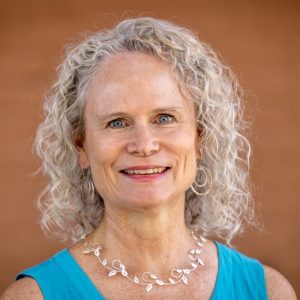 Kathleen Andereck, Professor
Kathleen Andereck, Professor
Kathleen Andereck is the coordinator for the Sustainable Tourism Certificate. The classes she teaches include Introduction to Travel and Tourism, Program Planning, and Research Methods. Her research focuses on the tourism experience from the perspective of both visitors and residents particularly as it applies to sustainable tourism. She has done research work with a diversity of organizations and agencies at the federal and state level including Navajo Nation, National Park Service, Arizona Office of Tourism and the Arizona Department of Transportation as well as individual organizations and communities.
Kathy teaches part of the Sustainable Destination Planning, Development and Management Modules as well as the Sustainable Tourism Strategic Plans Module.
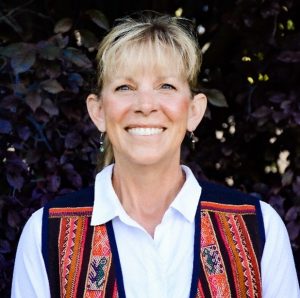 Kelly Bricker, Professor
Kelly Bricker, Professor
Kelly Bricker is Interim Director of the Center for Sustainable Tourism and director of the College’s programs in Hainan China. She is a committed sustainable tourism scholar and educator, who often leads educational tourism experiences. She has authored books on sustainability, highlighting case studies that address environmental and societal issues, such as “Sustainable Tourism & the Millennium Development Goals: Effecting Positive Change.” She serves on the boards of the Global Sustainable Tourism Council, Tourism Unity, and Tourism and Protected Area Specialists Group of the International Union for Conservation of Nature.
Kelly teaches the Tourism and Biodiversity Module.
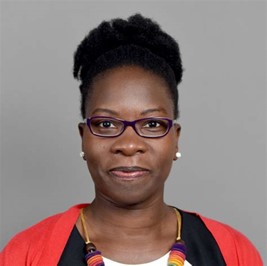 Christine Buzinde, Professor
Christine Buzinde, Professor
Christine Buzinde is Director of the School of Community Resources and Development. She teaches classes such as Tourism Marketing, Advance Tourism and Recreation Studies, and PhD Seminar. Her research focuses on two areas: community development through tourism and the politics of tourism representations. Her work on development adopts a grassroots approach and it aims to understand the relationship between community well-being and tourism development within marginalized communities. She has conducted research in the United States, Tanzania, Ecuador, Mexico, India and Nepal.
Christine teaches the general marketing component of the Marketing and Social Media Module.
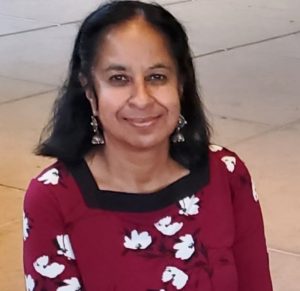 Deepak Chhabra, Associate Professor
Deepak Chhabra, Associate Professor
Deepak Chhabra teaches classes such as Tourism Marketing, Heritage and Cultural Tourism, Advanced Tourism and Recreation Studies, and Destination Planning. Her research interests include smart and strategic marketing in the tourism and hospitality industry; promotion of ethical production and consumption practices in tourism; building of social, cultural and economic equity or capital in local, regional, and global communities and authenticity and authentication process of heritage commodities in tourism. She has conducted economic impact and marketing-related studies for a variety of organizations including government agencies.
Deepak teaches the Inclusive and Responsible Tourism module.
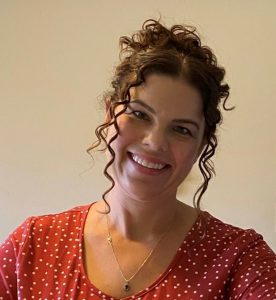 Rebekka Goodman, Lecturer
Rebekka Goodman, Lecturer
Rebecca Goodman is coordinator for the School’s Master of Sustainable Tourism degree. She teaches Sustainable Communities, Sustainable Tourism, and Sustainable Thinking in Tourism as well as other classes. She has nearly 10 years of experience in curriculum development in sustainability and tourism including the creation and implementation of study abroad programs in Switzerland, Mexico, Chile, Guatemala, and Australia and Fiji.
Rebekka teaches the Introduction to Sustainable Tourism Module.
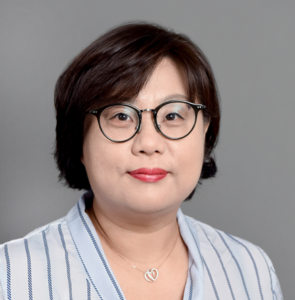 Woojin Lee, Associate Professor
Woojin Lee, Associate Professor
Woojin is the Graduate Coordinator for the School’s MS and PhD program. She teaches International Tourism, Convention Sales and Marketing, and Statistics.
Lee has been conducting research in the areas of information communication technology, promoting and marketing local events and festivals, and further, Key success factors towards in MICE (Meeting, Incentives, Conventions and Exhibitions) Industry. Lee has expertise in examining the impacts of communication technology on online consumer behavior, especially the effects of using social media and adopting of service robots in tourism and hospitality industry from the marketing perspectives.
Woojin teaches the social media component of the Marketing and Social Media Module.
Gyan Nyaupane is Associate Dean of Research. He teaches courses on Sustainable Tourism, Critical Issues in Community Development, and Tourism Planning. His research interests lie in understanding the human-environment interactions, particularly connecting communities and conservation through tourism. He has done research on various topics, including sustainable tourism, ecotourism, protected area management, public lands, natural resource management, community development, and Indigenous Peoples globally. “Cultural Heritage and Tourism in the Developing World: A Regional Perspective” is one of the books he has published.
Gyan teaches part of the Sustainable Tourism Strategic Plans Module.
 Nicholas Wise, Assistant Professor
Nicholas Wise, Assistant Professor
Nicholas Wise focuses his teaching on Tourism Planning, Tourism Management, and Research Methods. His current research focuses on placemaking, competitiveness, social regeneration and community impacts, conducting work across the areas of sport, events and tourism. He brings an international perspective to his teaching informed by scholarly research in numerous countries. His recent publications appear in Leisure Sciences, International Journal of Contemporary Hospitality Management, Political Geography, and Rural Studies. He also recently edited an published a book titled A Research Agenda for Event Impacts, Edward Elgar, 2022.
Nick teaches part of the Sustainable Destination Planning, Development and Management Modules.
Please pay particular attention to the stipulations for payment-there is a deadline and once you have submitted payment you are committed. We cannot process refunds.
2024 AIANTA/ASU Sustainable Tourism Scholarship
Through a collaboration with the Office of Indian Economic Development, AIANTA is able to offer FIVE scholarships for the course which are funded by NATIVE Act funds. We are thrilled to offer registration support for up to five participants in our 15 regions. AIANTA will offer one participant opportunity per region. One member per Tribe, Native Nation and/or Native Hawaiians will be considered for participation in the program. Spots are filled on a first-come, first-served basis, as qualified applications are received. Application can be found below.
More Information
